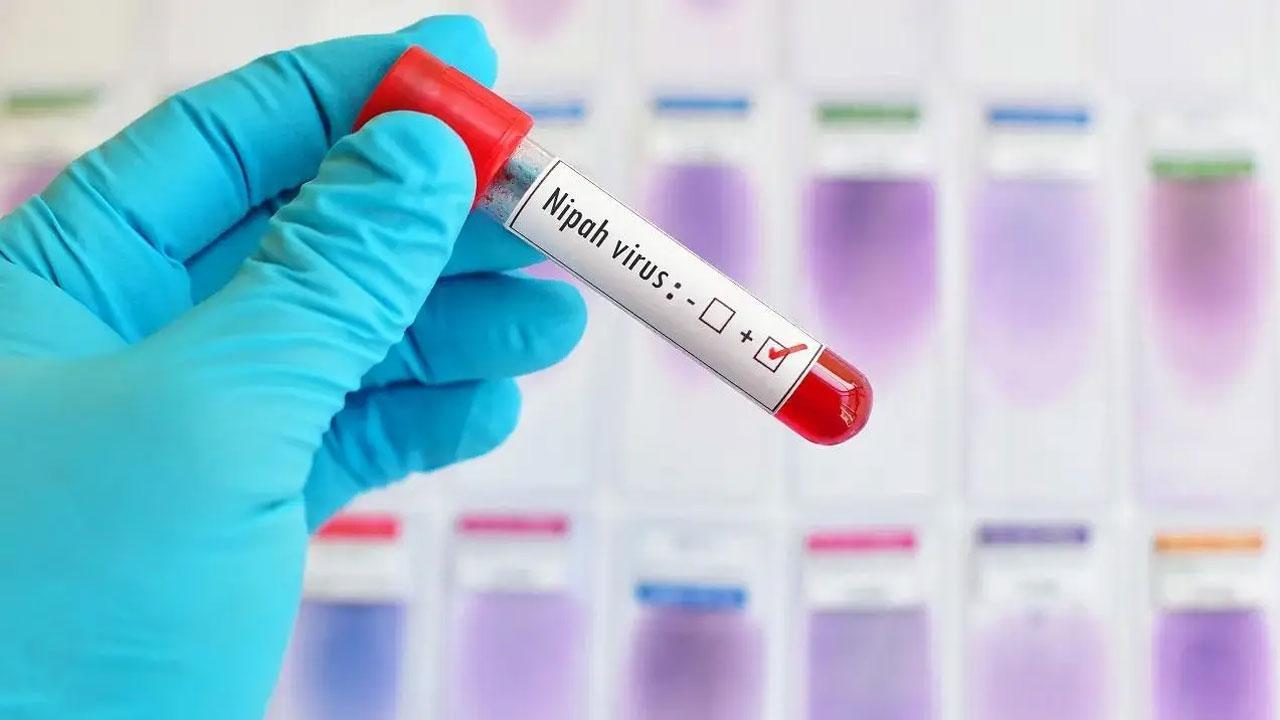Despite the high death rate, Bahl said that the virus is not as transmissible as Covid and has small episodes, with maximum cases going up to 100.

Image for representational purposes only. Photo Courtesy: iStock
Nipah virus can spread by respiratory droplets and has a fatality rate of 40 to 70 per cent, Indian Council of Medical Research (ICMR) Director General, Dr Rajiv Bahl, said on Friday. In comparison, Covid has only "2-3 per cent fatality rate", he said at a press conference here.
ADVERTISEMENT
"Nipah is a zoonotic virus (transmission of virus from animal to humans)," said Bahl noting that "fruit bats are the reservoirs" of the virus. "It can be spread via droplets, besides blood and bodily fluids," he said. Despite the high death rate, Bahl said that the virus is not as transmissible as Covid and has small episodes, with maximum cases going up to 100.
Nipah was first recognised in 1999, since then it has made its mark in four or five countries: Malaysia, Singapore, Bangladesh, the Philippines, and India. Since 2018, Kerala is currently seeing its fourth outbreak of Nipah. The present cases have been reported about 15 km from where the initial Nipah virus outbreak in southern Indian state was first identified in Kozhikode in May 2018 and then again in 2021.
In June 2019, a sporadic case of Nipah resurfaced from a geographically different location, at Kochi. In the latest outbreak, 6 people have been infected with 2 deaths reported. Bahl said containment is the only strategy, in the absence of any vaccine or medications.
He also noted that India is procuring 20 more doses of monoclonal antibody from Australia. He said that the M102.4 antibody, tested on 14 people globally and found safe, that is no one died, by the University of Queensland in Australia. It will be administered on "compassionate ground", as there has been no knowledge of its side effects, and will be decided by the Kerala government and doctors there.
"Currently India has doses for 10 people, we have requested for 10 more people," Bahl said. Each person requires 2 doses, and so far it has not been administered to anyone in India, he added.
The vaccine was developed by Queensland researchers in 3 batches and stored in minus 80 temperature and is stable for 5 years. India first received the vaccine in 2018, but couldn't use it as the Nipah virus cases died down by then. In addition, the ICMR has also deployed it's first mobile BSIII (Biosafety level-3) laboratory in Kozhikode for on ground testing of the cases.
This story has been sourced from a third party syndicated feed, agencies. Mid-day accepts no responsibility or liability for its dependability, trustworthiness, reliability and data of the text. Mid-day management/mid-day.com reserves the sole right to alter, delete or remove (without notice) the content in its absolute discretion for any reason whatsoever
 Subscribe today by clicking the link and stay updated with the latest news!" Click here!
Subscribe today by clicking the link and stay updated with the latest news!" Click here!







